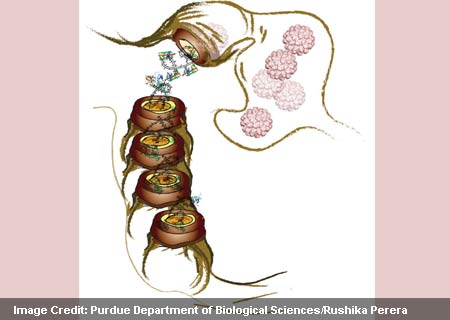Every other day we find kids and elders succumbing to the deadly dengue virus. As an important investigation on this front, scientists from the Purdue University have located enzymes and lipids that are affected by the dengue virus following an infection of the same.
The scientists found that an enzyme namely fatty acid synthase is influenced by the virus. Thus, compounds that restrained the synthesis of this enzyme seemed to prevent virus duplication in the body. This suggested that drugs related to lipid storage and production which are already in the market may be used for the treatment of dengue too.
“The virus reorganizes the internal architecture of the cell to support its own needs. Many details are unknown. This is our first attempt to understand how the virus alters lipids as part of the infection process. Part of what we looked at in this work was how the virus changes the cell, and the next step will be to figure out why,” commented Purdue University research scientist Rushika Perera.
The scientists also believed that it may be easier to control the spread of the virus in mosquitoes, as compared to humans. Moreover, the findings are applicable to diseases like hepatitis C, West Nile virus and yellow fever, the scientists concluded.
This analysis may point to new ways of treating dengue fever as the solution could lie in simple anti-cholesterol pills, the team added. This report is published in the March 22 issue of the journal, PLoS Pathogens.

